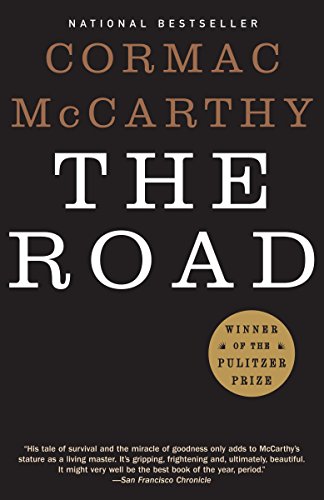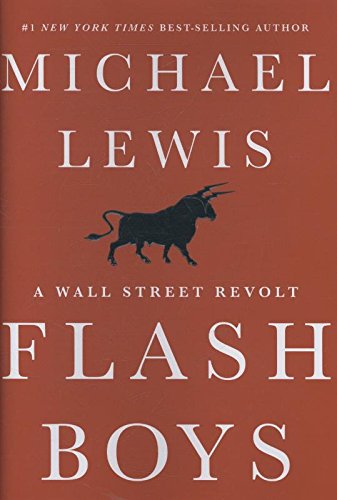The Highlands Forum is a Pentagon-funded, contractor-executed think-boutique, a miniature Aspen Institute. It holds casual meetings for the purpose of sharing ideas, and the ideas being shared are linked by a single overarching theme. I think this theme is “How can government bureaucrats and armchair generals simulate the dynamism of real world economic forces, technology and society in order to forestall the imminent collapse of the world as they know it.”
In other words, survivalism for statists.
Highlands is self-defined as “an informal, cross-disciplinary network sponsored by Federal Government with a common interest in information, science, and technology and their impact on global and societal activities.” I doubt forum members entertain conspiracy theories or theorize about red pill, blue pill consumption. Or perhaps, that’s exactly what they do!
 The Road
Best Price: $1.00
Buy New $6.58
(as of 06:40 UTC - Details)
The Road
Best Price: $1.00
Buy New $6.58
(as of 06:40 UTC - Details)
Economics is not a focused concern, but rather information and technology – and how these can impact societal activities. The premise seems to be that economics is an also-ran incidental and that societies can “act.”
It is easy to dismiss such trivial government expenditures, so tiny relative to the two trillion spent each year on and by government actors. But it might be interesting to be aware of what they are studying, what books they are talking about, and presumably reading.
First and foremost, the Highlands Forum booklist does not promote the study Austrian economics nor does it entertain revisionist history. While understandable on several levels, this is fundamentally to ensure that the same people are able to return again and again to Highlands’ functions. It is well known that a small dose of sound money theory and American historical mythology ignites the mind, and permanently opens an intellectual door that inevitably swings back hard on the collective backside of the modern American statist. Those awakened souls tend to ask too many questions, laugh at the wrong times, and be less impressed than they should at intellectual pomposity.
 The Dead Hand: The Unt...
Best Price: $3.59
Buy New $8.74
(as of 05:25 UTC - Details)
The Dead Hand: The Unt...
Best Price: $3.59
Buy New $8.74
(as of 05:25 UTC - Details)
There are some great reads on the list. Cormac McCarthy’s novel The Road is recommended, and a wide variety of terrorist, computer crime and spy-oriented novels are also listed in the fiction categories. The Forum is enthralled with the idea of Black Swans and the nature of societal awareness, beliefs, and attitudes, and technologies that fuel and feed them. But the attraction seems to be less in what and how it works, but rather how government, not limited to the Pentagon, in a future global/domestic role, can leverage these events, beliefs and attitudes.
In the review of some recommended books, the Forum cautions that “you may disagree with the author’s conclusions.” Of course, on the subjects of the need for a global Pentagon interventionist presence or elite-directed state action required in the face of climate change and resource availability, no such warning is provided.
Thus, “Parker’s book [on global warming] serves as a warning that if we do nothing to arrest the trend, then the world could face another general crisis, but with even more dreadful and longer term consequences.”
From the 2014 list, several of the 25 books recommended really do look interesting, including The Dead Hand: The Untold Story of the Cold War Arms Race and its Dangerous Legacy by David Hoffman and Flash Boys: a Wall Street Revolt by Michael Lewis, a LewRockwell best-seller back in April!
 Flash Boys
Best Price: $1.17
Buy New $5.79
(as of 11:15 UTC - Details)
Flash Boys
Best Price: $1.17
Buy New $5.79
(as of 11:15 UTC - Details)
The 2013 list has a book that really sums up what I suspect the Highland Forum is focused on, and the title says it all: Moises Naim’s The End of Power: From Boardrooms to Battlefields and Churches, to States, Why Being in Charge Isn’t What It Used to Be. The description includes this revealing statement by the author and a worry shared by the Forum, “What happens when power is radically scattered, diffuse, and decayed? The philosophers already knew the answer: chaos and anarchy”.
It could be that when power is radically scattered and diffuse, and when bureaucracies of business and government decay down to their most lean, responsive, and cost effective, that the result is prosperity and peace. Certainly without massive government connected businesses and banks, state-leveraged media, and the state itself, the great wars and exploitive empires of recent centuries would have been difficult to launch, and impossible to maintain. But what do we know!
Some of the titles seem to comprise the ruling elite’s survival library, with books describing how the Treasury Department “recovered” from a stripping of many of its enforcement powers into the new Department of
 The End of Power: From...
Best Price: $5.97
Buy New $19.97
(as of 11:25 UTC - Details)
Homelands Security and bounced back as a key player in the “war on terror,” and books about resiliency in the face of natural disaster, the nature of urban society and technology, how ideas spread, and how complex goals might be achieved by using oblique approaches. The concept of anti-fragility (Nassim Taleb of Black Swan fame) is recommended, and also a book called “Why Nations Fail,” that concludes that “Nations which are “extractive”, that is those which take from the system and its people, while protecting the power of the ruling class, are bound to fail.”
The End of Power: From...
Best Price: $5.97
Buy New $19.97
(as of 11:25 UTC - Details)
Homelands Security and bounced back as a key player in the “war on terror,” and books about resiliency in the face of natural disaster, the nature of urban society and technology, how ideas spread, and how complex goals might be achieved by using oblique approaches. The concept of anti-fragility (Nassim Taleb of Black Swan fame) is recommended, and also a book called “Why Nations Fail,” that concludes that “Nations which are “extractive”, that is those which take from the system and its people, while protecting the power of the ruling class, are bound to fail.”
 It’s all very interesting. I encourage you to glance through the booklists for the past decade and draw your own conclusions. We can easily access elite government controller explanations and solutions for survival of the bureaucratic state, a genre where most of Cass Sunstein’s work resides. But in examining more broadly the kinds of things statists are reading and recommending to others, we may be able to understand better their own fears and goals, and their preferred strategies.
It’s all very interesting. I encourage you to glance through the booklists for the past decade and draw your own conclusions. We can easily access elite government controller explanations and solutions for survival of the bureaucratic state, a genre where most of Cass Sunstein’s work resides. But in examining more broadly the kinds of things statists are reading and recommending to others, we may be able to understand better their own fears and goals, and their preferred strategies.
The state, the people who believe in it and make their living from its extractive and coercive powers, does recognize that information, science and technology is and has been weakening its traditional levers of media, citizen mythologies, regulation, welfare distribution and even control of the currency. In many ways, doomsday preppers have nothing on the Pentagon’s strategic minds in a post Andy Marshall era. We are all looking at the same world, and drawing many of the same conclusions.
Yet, what a difference a free market and private property rights framework makes in one’s perspective and approach to the future. I hope 2015 brings exponential growth in the discussion and sharing of these liberty fundamentals with thinking people everywhere! Who is to say that the reading list of the Highland’s Forum for this year can’t contain Mises’ Bureaucracy and Etienne de la Boeties’ The Politics of Obedience!
 The Politics of Obedie...
Best Price: $9.06
Buy New $8.00
(as of 02:20 UTC - Details)
The Politics of Obedie...
Best Price: $9.06
Buy New $8.00
(as of 02:20 UTC - Details)
 Bureaucracy (Lib Works...
Best Price: $5.83
Buy New $9.65
(as of 03:55 UTC - Details)
Bureaucracy (Lib Works...
Best Price: $5.83
Buy New $9.65
(as of 03:55 UTC - Details)
 Against the State: An ...
Best Price: $5.02
Buy New $5.52
(as of 11:35 UTC - Details)
Against the State: An ...
Best Price: $5.02
Buy New $5.52
(as of 11:35 UTC - Details)





